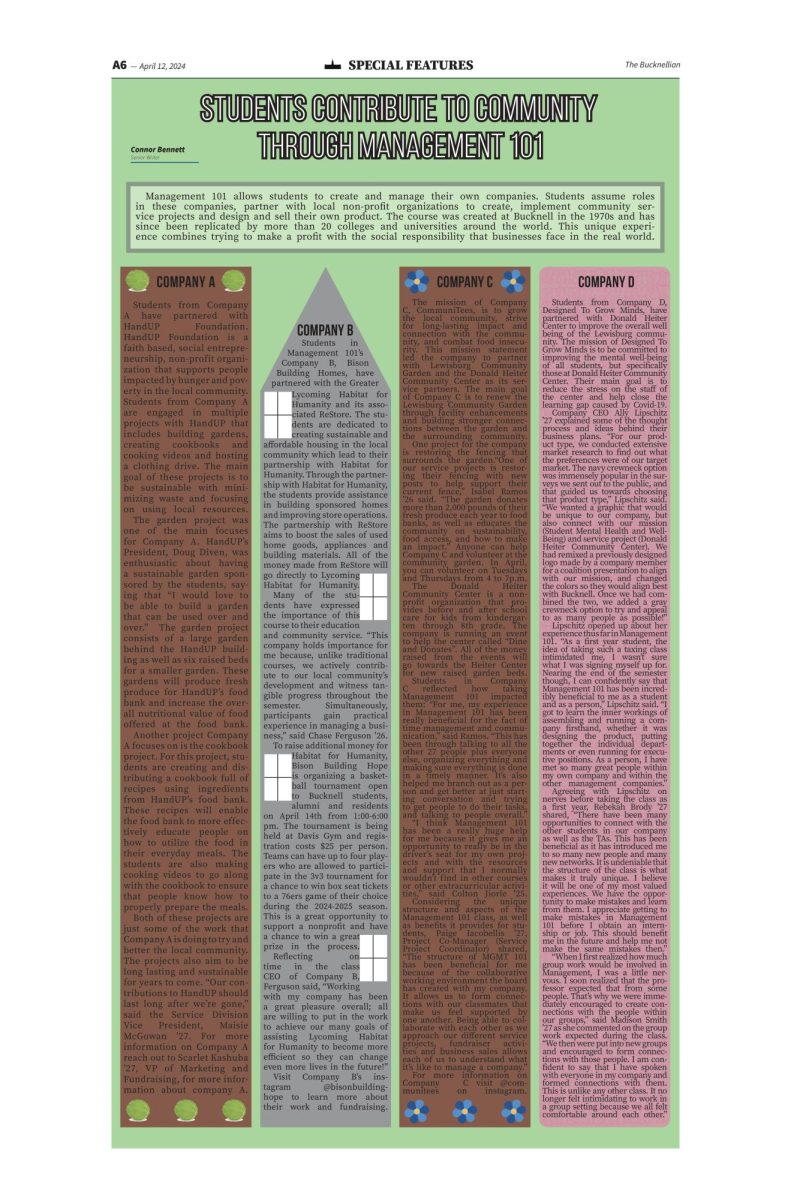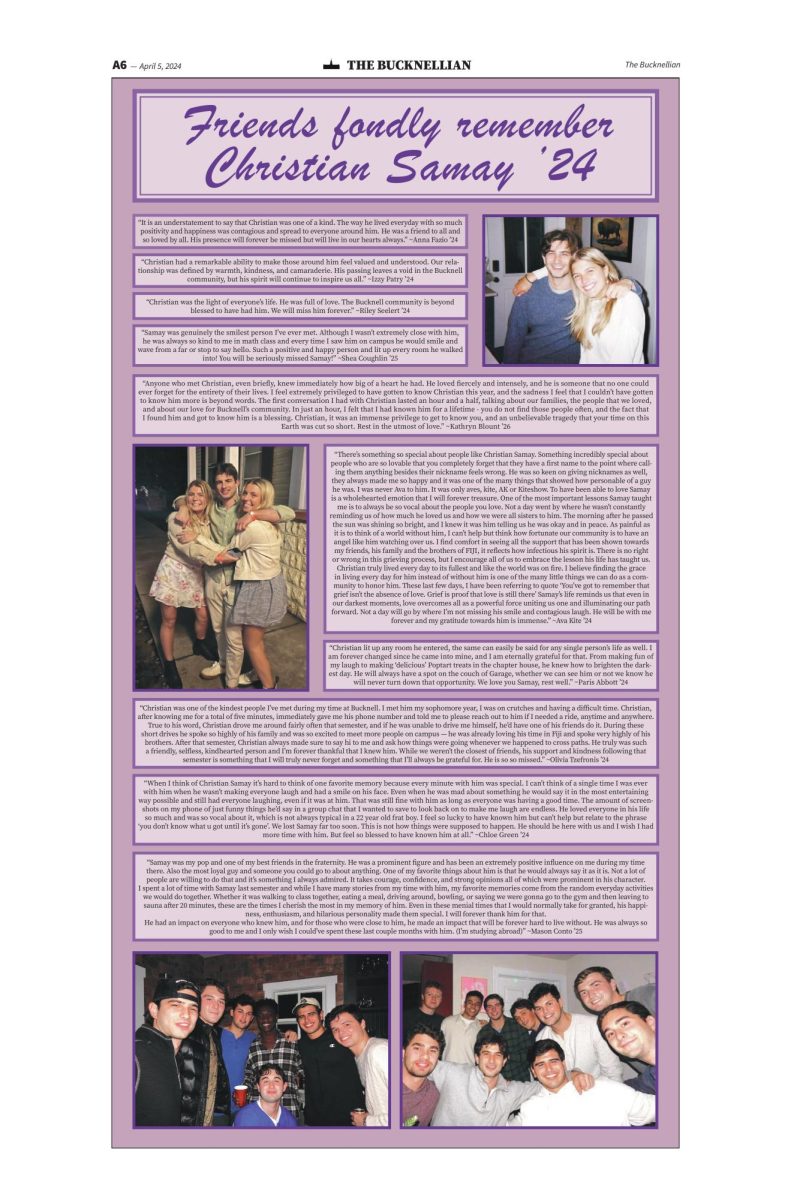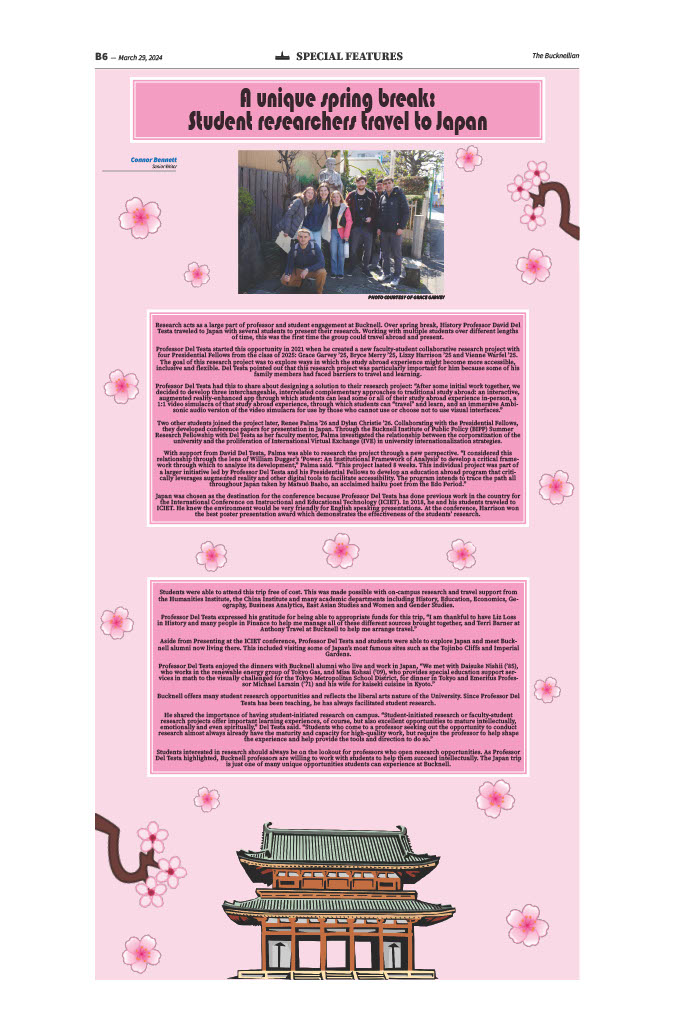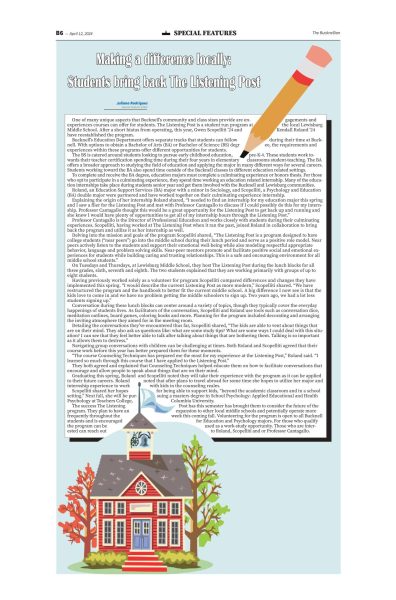Editorial: Anonymous op-ed in The New York Times stirs questions of the President’s competency
September 13, 2018
The anonymous op-ed published in The New York Times last Wednesday written by a senior official in the Trump administration left our editorial staff feeling as though we couldn’t wait until our next publication date to offer commentary.
The significance of an anonymous publication cannot go understated. The Bucknellian does not publish anonymous quotes, nor anonymous articles, because of the journalistic risk of losing credibility. Anonymous sources hold little credibility because they cannot be traced; the usual circumstances surrounding an anonymous publication are limited to the immediate danger of the author. Thus, the decision to publish an anonymous piece holds incredible weight, especially coming from a publication as widely-known and as widely-respected as The New York Times. The urgency of the piece, and the necessity of its publication, are certainly pronounced in its anonymous appearance.
In recent months especially, comments emerging from Trump’s twitter account and from official briefings have erred on the side of autocracy. The defining characteristic of an autocracy is the centralization of focus around one person, rather than a distribution of power among many officials. Suggestions towards autocracy have extended from the recent nomination of Kavanaugh, who mentioned his aspiration to overturn United States v. Nixon (1974) which would repeal decisions limiting executive privileges, to the spew of tweets from the president’s account, claiming the Times must turn in the “GUTLESS” individual to the government “for National Security purposes.”
The reaction from the President was undoubtedly provoked by the commentary within the op-ed piece, which described a general consensus among top officials within the Trump administration that the behavior of the President is unprofessional, and his style of leadership is both ineffective and egotistical.
It’s comforting to know that, if this anonymous senior official is truthfully describing the situation behind the walls of the White House, those inside are making efforts towards what they believe is the best direction for the country, rather than obeying the commands originating from the ever-erratic behavior of the President himself. It is not unusual for an official within a presidential administration to dissent with aspects of the President’s mission, but a seemingly universal discrepancy, one shared among a majority of officials within the President’s immediate circle, is highly unusual.
The public reaction to the piece has played into both ideological bases surrounding the controversy of Trump’s presidency. Supporters have attacked the reliability of The New York Times; a familiar reaction to many liberal-leaning op-eds that the paper has released. Trump’s ideological opponents have seen the op-ed as a telling example of the President’s incompetent leadership. As the editorial board of our own publication, we respect the decision of The New York Times as we continue to grapple with the compelling information the op-ed has provided the American public.
























Bucknell Parent • Sep 11, 2018 at 7:52 am
“It’s comforting to know that, if this anonymous senior official is truthfully describing the situation behind the walls of the White House, those inside are making efforts towards what they believe is the best direction for the country, rather than obeying the commands originating from the ever-erratic behavior of the President himself.”
So you are comported by a non-elected group of officials conducted a soft coup as detailed by a party that does not want to identify him/her self as opposed to democratically voting the person out of office in the ordinary course as prescribed in an actual democracy? Really? What if it discovered that the author is an equally driven power hungry autocrat? I guess your reply will be ‘opps’. Your bias is clear and disappointing from a purely journalist point of view. Show some integrity next time.